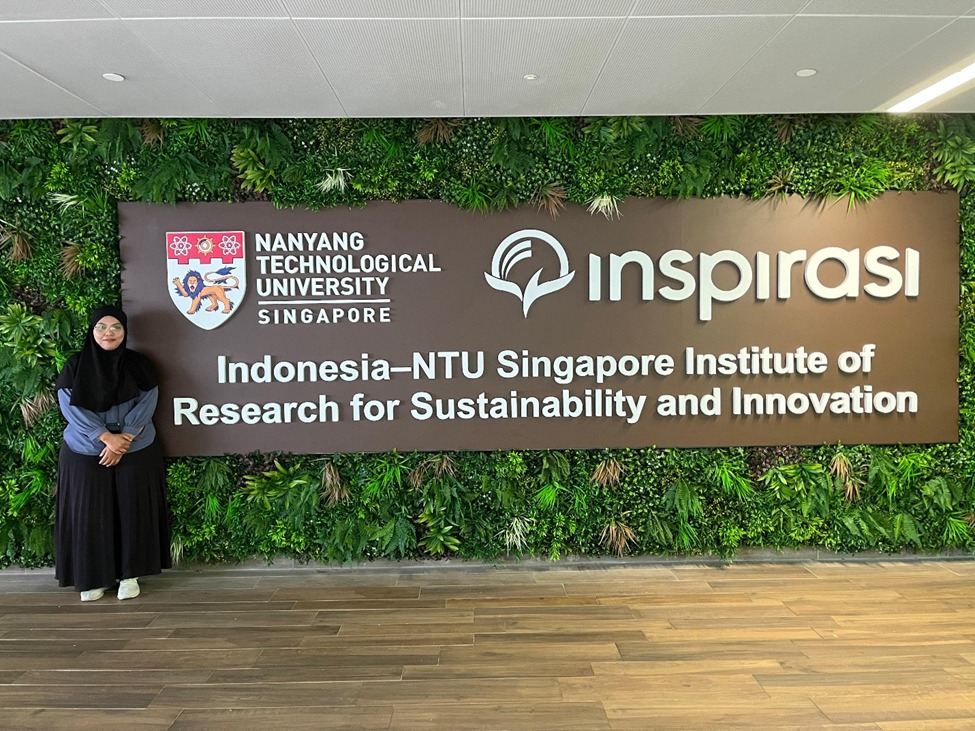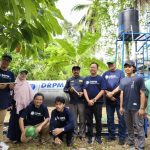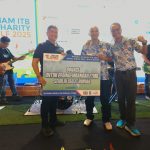FTMD ITB Doctoral Student Gains Global Research Experience at NTU Singapore
Wika Ratnasari, a doctoral student from the Faculty of Mechanical and Aerospace Engineering Institut Teknologi Bandung (FTMD ITB), recently joined a three-month research exchange program at Nanyang Technological University (NTU), Singapore, from September 1 to December 5, 2024. The experience reflects FTMD ITB’s commitment to internationalizing its doctoral program, encouraging PhD students to engage in global research while staying rooted in their academic foundation at home.
Under the supervision of Prof. Dr. Ir. Hermawan Judawisastra, M.Eng., together with Ekavianty Prajatelistia, Ph.D. and Prof. Dr. Anggraini Barlian, M.Sc., Wika’s research focuses on developing bone scaffolds made from catfish waste combined with cerium oxide nanoparticles. Using 3D printing technology, her work aims to create biomaterials that are biocompatible, support bone cell growth, and possess strong antibacterial properties.
Wika’s interest in biomaterials began with her concern about the abundance of underused catfish waste and spiders often considered pests in the agricultural areas of Lembang. She saw great potential in transforming these overlooked resources into valuable materials for bone regeneration. “I want my research to make a real contribution to the development of biomaterials in Indonesia,” she said.
During her time at NTU, Wika received intensive laboratory training and collaborated with local researchers to draft a scientific publication. She shared that the experience broadened her perspective on international research standards and scientific thinking. “At NTU, the research culture is very structured. We are encouraged to think critically and work collaboratively across disciplines,” she explained.
Although she recognized the differences in research facilities between Indonesia and Singapore, Wika viewed this as a valuable learning opportunity. “In abroad, research infrastructure is very complete, allowing researchers to focus on ideas and analysis. In Indonesia, we learn to improvise and adapt to limitations, and that builds strong problem-solving skills,” she reflected.
Wika expressed gratitude for the solid academic foundation she received at ITB, noting that the university’s strong reputation helped open doors for international collaboration. “ITB is well respected globally, which made me more confident when engaging with international researchers,” she said. The exchange program was fully funded through a research partnership between ITB and NTU, covering all tuition and research expenses during her stay.
For Wika, pursuing a doctorate is not just about earning the highest degree but also about cultivating perseverance, consistency, and sharpness of thought. “I hope to become an academic who not only teaches but also builds research that brings real impact to society,” she concluded.
Through stories like Wika’s, FTMD ITB continues to demonstrate its dedication to nurturing globally competitive doctoral programs. With the spirit of “Global Mindset, Local Strength,” FTMD ITB strives to produce researchers and academics who can connect global scientific knowledge with Indonesia’s needs.







